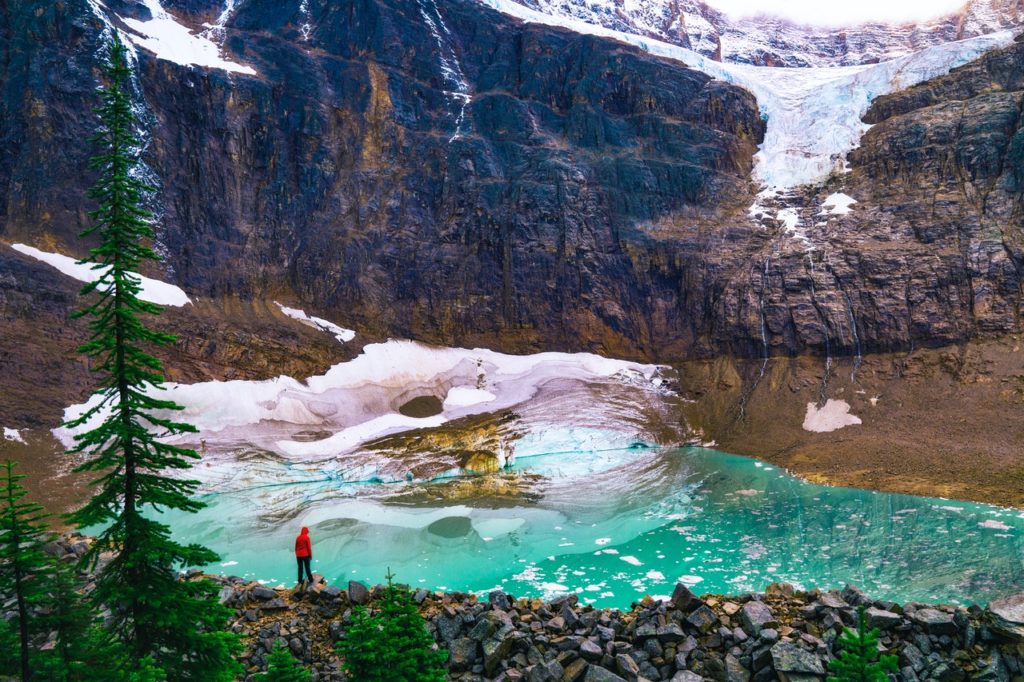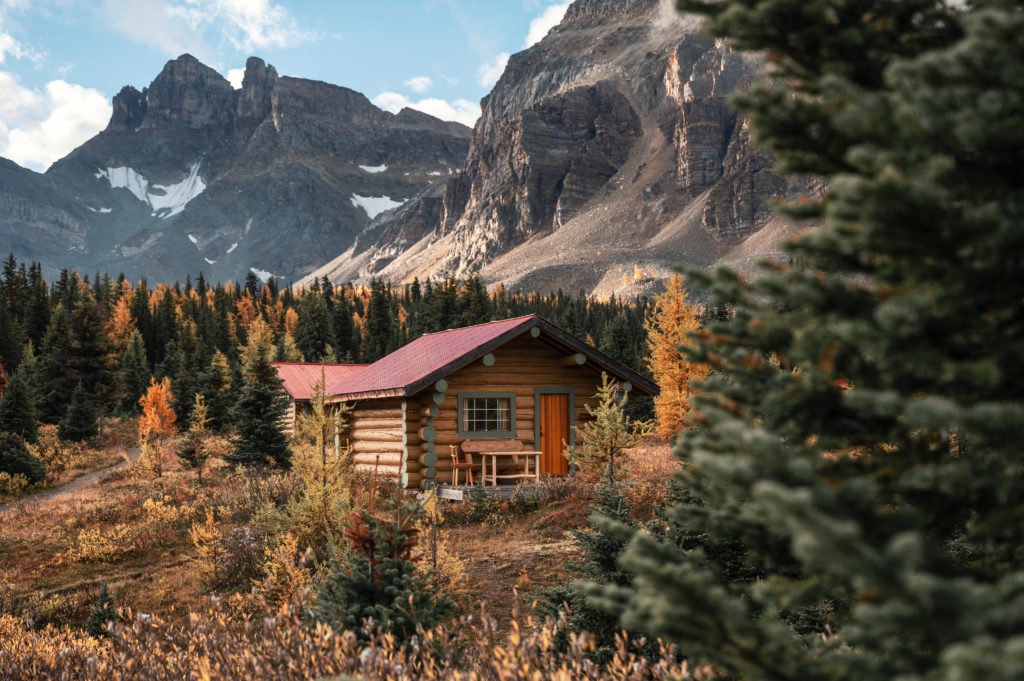Adventure tourism often involves commercial operators offering fee-based outdoor recreation activities to the public on provincial Crown land. Broadly speaking, these activities include guided adventure tourism activities within an extensive operating area, but then can also include improvements (such as huts, wharves, horse corrals and campsites) on the land that are linked to the guided experience.
If your business wants to provide services on B.C. Crown land, you’ll need to become familiar with the extensive application and reporting processes that the government has instituted for the tenure process.
Adventure Tourism Policy
In British Columbia, an official Adventure Tourism Policy governs commercial use of provincial Crown lands and sets out the regulatory framework for the different forms of tenured land allocation (and their respective pricing) that commercial adventure tourism operators can seek.
This policy applies to commercial recreation/tourism operators and educational institutions that provide outdoor recreation/tourism activities on provincial Crown land (including land covered by water), as well as non-profit societies that organize public recreation or tourism special events on provincial Crown land.
The policy is distinct from and does not apply to:
- adventure tourism activities on lands administered under the Park Act (these parks are subject to their own permitting requirements),
- guided hunting and angling activities (these are regulated under the Wildlife Act),
- all seasons resort development projects (these are authorized under the province’s All Seasons Resort Policy), and
- the development of public recreation sites or trails (these fall under the Forest and Range Practices Act).
According to the Adventure Tourism Policy, there are three different forms of tenured land allocation that prospective commercial operators can seek: Intensive Use Sites, Guided Activities and Special Events. The form of tenure required by an adventure tourism operator depends on the sort of activities and operations you’re planning.
- Intensive Use Sites
An Intensive Use Site is the form of tenure that applies to improvements (e.g. wilderness lodges, cabins and campsites), water access/egress sites and day use/camping areas related to water-based activities (e.g. kayaking, canoeing and river rafting), and floating adventure tourism improvements anchored to provincial Crown land covered by water (e.g. commercial recreation docks and fishing lodges).
In other words, if you need some degree of a permanent structure in connection with your outdoor adventure business, you will likely require this form of tenure.
Two different forms of land allocation are possible for Intensive Use Sites: a Licence of Occupation or a Lease.
- Licence of Occupation
The government may issue a Licence of Occupation for small, site-specific areas of provincial Crown land for adventure tourism purposes where minimal improvements are contemplated or where there are multiple users of a site.
A Licence of Occupation for an Intensive Use Site does not ensure exclusive use, is not a registerable interest that can be mortgaged, does not require a survey, and can involve restricted public access (at the discretion of a Decision Maker under the Land Act).
The term for a Licence of Occupation for an Intensive Use Site may be for up to 45 years. Annual Licence of Occupation rent for a primary Intensive Use Site is 7.5% of the B.C. Assessment land value or $500, whichever is greater.
Because a licence carries with it fewer rights than a lease, a licence is not recommended for Intensive Use Sites where you’re planning substantial improvements (such as a base camp lodge).
- Lease
If your commercial adventure tourism operation will require substantial improvements to an Intensive Use Site, a lease is the recommended form of tenure. A lease grants you the right to: modify the land and/or construct improvements specified in the grant of tenure, and enjoy exclusive use of the area (including the ability to lock cabins and install fencing with locked access gates).
A legal survey is typically required (at the applicant’s expense) to define the tenured area and is required to register a lease as an interest under the Land Title Act.
The term for a lease for an Intensive Use Site may be for up to 60 years. Registered leases for a term of 30 or more years are subject to the Property Transfer Tax Act (PTT); unregistered leases are not subject to the PTT. Annual lease rent for a primary intensive use site is 8% of the B.C. Assessment land value or $500, whichever is greater.
iii. Decision Maker Considerations
When considering an Intensive Use Site tenure application, the government’s Decision Maker will weigh numerous factors, including:
- a demonstrated business need,
- whether all other land tenures by the same applicant are in good standing,
- the area is generally no larger than required for improvements,
- alignment with current or proposed land use plans, and
- the results of First Nations consultations.
The Decision Maker may require additional business information to support an application for a longer term tenure.
- Guided Activities (Extensive Use Area)
A non-exclusive Licence of Occupation for an Extensive Use Area is the standard form of tenure for an adventure tourism operator who conducts dispersed guiding activities over a large area of Crown land. Such guided activities would include mountaineering, rafting, horseback riding, wildlife viewing, snowmobiling, ski touring, ATV-ing, mountain biking and heli-skiing.
The non-exclusive Licence of Occupation provides for non-exclusive use, is not a registerable interest that can be mortgaged, does not allow the tenure holder to restrict public access, and may be for a range of mechanized and/or non-mechanized guide activities.
The term for a Licence of Occupation for an Extensive Use Area may be for up to 45 years. Annual Licence of Occupation rent for an Extensive Use Area is calculated based on either a minimum rent or the number and type of client days in the area.
- Special Events
It is possible to obtain a temporary permit authorizing short-term guided or unguided adventure tourism special events or non-profit societies that organize public recreation/tourism special events on Crown land. Such temporary permits convey the non-exclusive use of provincial Crown land, but do not authorize the permit holder to restrict public access over the area.
The term for a temporary permit for Special Events is 14 days in a 30-day consecutive period. Minimum rent for a temporary permit is $125 and for adventure tourism guiding is based on either the minimum rent or the number and type of client days in the area.
Tenure Allocation
There are different application requirements depending on the type of tenure being applied for (Intensive Use Sites, Extensive Use Areas or both Extensive and Intensive Use Areas).
If an Extensive Use Area application overlaps the adventure tourism activities of an existing adventure tourism tenure holder, the type of activities will be examined, and if they are deemed “not compatible,” the two must form a Joint Use Agreement before the applying tenure seeker will be considered.
A Tenure Management Plan is required for temporary permits for Special Events, Licences of Occupation and Leases. These plans must:
- describe the nature and scope of proposed adventure tourism activities (and their respective geographic areas),
- describe the adventure tourism activities that will be undertaken in the “near future” (typically within five years),
- describe the location, nature and scale of any improvements to be constructed,
- identify specific access routes/trails and any proposed trail developments,
- include an Extensive Use Area of sufficient size to allow flexibility of use (for guided adventure tourism activities), and
- avoid or minimize potential conflicts with other users of Crown land (including the public).
A Risk Management Plan that addresses safety (meeting or exceeding approved adventure tourism industry standards) must also be completed as part of the application process. While the Risk Management Plan is required in addition to a Tenure Management Plan, it is not attached to and does not form a part of the tenure.
Further, all adventure tourism applications proposing backcountry snow sport activities (such as heli-skiing, cat-skiing, snowmobiling, ski touring, etc.) are also required to have an Avalanche Risk Management Plan.
Once a tenure application is accepted for processing, the government will:
- Undertake a land status review of any proposed Intensive Use Sites;
- Undertake a preliminary land status review of any proposed Extensive Use Areas (to confirm the area is available for application);
- Provide the applicant with a list of adventure tourism tenure holders within their application area and the input form that each of them will receive in respect of the application;
- Solicit comments from recognized agencies and groups;
- Consult with First Nations; and
- Where applicable, conduct field inspections.
The government may assign a Project Review Team for complex applications – such as those that may have a significant impact on the environment, other users or other applications.
The Province of British Columbia has legal obligations to consult and, if required, accommodate First Nations interests when a decision may adversely affect treaty rights or claimed or proven Aboriginal rights or title. While the Province is responsible for ensuring adequate and appropriate consultation and accommodation, tenure applicants should consider pre-emptively engaging with First Nations communities in their intended area(s) prior to tenure application.
The government assesses applications for new adventure tourism tenure in part based on how well the land can support the applicant’s proposed use. This includes, among other things, the nature and scope of overlapping adventure tourism activities, responses from government agencies, feedback from the public, consultation with industry and stakeholder groups, consultation with First Nations, vicinity of known archaeological sites, nature and scope of public recreation use, and land use plans and regional growth strategies. The Decision Maker will also prepare an Aboriginal Interest Consideration Report in response to the application and consultation with interested First Nations.
If the application is approved, the government will issue an Intent to Offer. It is the applicant’s responsibility to seek and obtain any further approvals before placing improvements or commencing operations on the granted tenure.
Tenure Administration
A tenure holder must purchase, and must maintain throughout the tenure term, a minimum level of public liability insurance as specified in the tenure grant. A minimum of $2 million third-party liability insurance is required for most adventure tourism tenures (however for heliski tenures, a minimum of $5 million is required). In addition to this, tenure holders may require additional insurance depending on the nature of their operations and the equipment they use.
The government may also require tenure holders to pose security deposit or bond to ensure compliance and completion of all the obligations and required specified in the tenure grant, including clean-up or reclamation of an area. A minimum of $1,000 is typically required for Licences of Occupation and Leases.
Assignment of a tenure holder’s interest to a third party (by sale, conveyance or otherwise) requires the prior written consent of the government, and the assignee must meet eligibility requirements.
An adventure tourism tenue holder may grant a sub-tenure to a third party, for a period of time less than the term of the original tenure, only for purposes described and authorized in the main adventure tourism tenure agreement.
Tenure holders with Extensive Use Areas must complete an Annual Diligent Use Report and Statutory Declaration.
To support the highest and best use of the land, and to provide adventure tourism business opportunities, the government may cancel a Licence of Occupation within an Extensive Use Area if it has not been diligently used for three consecutive years.
Any major amendments (such as a substantial expansion of area or a change in use/purpose) to the Tenure Management Plan require a new adventure tourism application.
If the government becomes aware that an adventure tourism tenure holder is not in compliance with the terms of his or her tenure or Tenure Management Plan, it may order the tenure holder to cease operations immediately, or require the operator to submit an application justifying the need to modify the Tenure Management Plan.
Key takeaways for outdoor/adventure businesses
B.C.’s Adventure Tourism Policy and its different types of tenured land allocation may feel overwhelming. But if your business is planning to operate on Crown land, it’s important to know and follow the application and reporting processes. Ryan Morasiewicz [hyperlink to firm bio] understands this industry and the relevant legislation – we can help you successfully navigate the regulatory framework and advise on other issues that may arise for your outdoor/adventure operation.
Note: This article is of a general nature only and is not exhaustive of all possible legal rights or remedies. In addition, laws may change over time and should be interpreted only in the context of particular circumstances such that these materials are not intended to be relied upon or taken as legal advice or opinion. Readers should consult a legal professional for specific advice in any particular situation.





